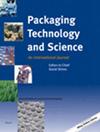Evaluation index system for the implementation of extended producer responsibility system: Chinese beverage paper‐based composite packaging manufacturers
IF 3.7
4区 工程技术
Q2 ENGINEERING, MANUFACTURING
引用次数: 2
Abstract
Paper‐based composite packages, which have been widely used for beverage in modern daily life, are featured of nutrition preservation and convenience. However, it is also causing environmental problems in urban areas because of the low recycling rate. The introduction of extended producer responsibility (EPR) is helpful to improving the recycling rate of beverage paper‐based composite packaging by extending the producer's environmental‐protecting responsibility for the product from its production to its end‐of‐life treatment. To find out the optimal strategy of applying the EPR system for beverage paper‐based composite packaging, this paper is conducted based on the basic framework of the EPR system, combined with the specific requirements of the EPR System Implementation Plan promulgated by China and the Implementation Plan of the EPR System for Beverage Paper‐Based Composite Packaging. An evaluation index system for beverage paper‐based composite packaging manufacturers is constructed to perform the EPR system, including three management‐level indicators, 10 standard‐level indicators and 42 programme‐level indicators. A comprehensive evaluation method is introduced to help the producers to fulfill the extended producer responsibility. Results suggest that beverage paper‐based composite packaging producers should first fulfill the responsibility in information disclosure, ecological design and use of recycled materials.生产者责任延伸制度实施评价指标体系:中国饮料纸基复合包装生产企业
纸基复合包装具有营养保存和方便使用等特点,在现代生活中被广泛应用于饮料包装。然而,由于回收率低,它也造成了城市地区的环境问题。引入生产者延伸责任(EPR),通过将生产者对产品的环境保护责任从生产延伸到使用寿命结束处理,有助于提高饮料纸基复合包装的回收率。本文以EPR制度的基本框架为基础,结合中国颁布的《EPR制度实施方案》和《饮料纸基复合包装EPR制度实施方案》的具体要求,探索饮料纸基复合包装EPR制度应用的最佳策略。构建了饮料纸基复合包装生产企业EPR评价指标体系,包括3个管理级指标、10个标准级指标和42个项目级指标。提出了一种帮助生产者履行延伸生产者责任的综合评价方法。研究结果表明,饮料纸基复合包装生产商应首先履行信息披露、生态设计和再生材料使用的责任。
本文章由计算机程序翻译,如有差异,请以英文原文为准。
求助全文
约1分钟内获得全文
求助全文
来源期刊

Packaging Technology and Science
工程技术-工程:制造
CiteScore
4.90
自引率
7.70%
发文量
78
审稿时长
>12 weeks
期刊介绍:
Packaging Technology & Science publishes original research, applications and review papers describing significant, novel developments in its field.
The Journal welcomes contributions in a wide range of areas in packaging technology and science, including:
-Active packaging
-Aseptic and sterile packaging
-Barrier packaging
-Design methodology
-Environmental factors and sustainability
-Ergonomics
-Food packaging
-Machinery and engineering for packaging
-Marketing aspects of packaging
-Materials
-Migration
-New manufacturing processes and techniques
-Testing, analysis and quality control
-Transport packaging
 求助内容:
求助内容: 应助结果提醒方式:
应助结果提醒方式:


